Nonviolent Climate Activist Group Says It's Been Targeted by FBI 'Terrorism' Task Force
"This is an escalation against the climate movement as a whole, and the next phase of this administration's crackdown on dissent," said Extinction Rebellion.
As the Trump administration broadens its efforts to criminalize dissent, a nonviolent climate advocacy group says the FBI is targeting it with a terrorism investigation.
Using a dubious legal designation of "domestic terrorism," the US Department of Justice (DOJ) has ramped up its efforts to surveil those it considers to be domestic enemies—including members of left-wing groups with no history of violence.
The New York City chapter of the group Extinction Rebellion said one of its former members came into the crosshairs earlier this month.
In a statement on Wednesday, the group said that a former member was visited by two special agents, one of whom was from the FBI's Joint Terrorism Task Forces, at their residence 200 miles outside New York City.
They said the agents asked about their involvement with Extinction Rebellion. The member declined to respond, referring the questions to their attorney.
The former member, who has chosen to remain anonymous, told the Intercept that they hadn't been involved with the group in two years and hadn't participated in any actions they thought would warrant FBI involvement.
“I believe this to be a significant escalation of the criminal legal system against Extinction Rebellion and find it very troubling,” Ron Kuby, an attorney for Extinction Rebellion, said. “This is usually the way we find out an actual investigation is underway and is often followed by other visits and other actions.”
He said he found it strange that Extinction Rebellion would become the target of a terrorism investigation. Members of the group take part in acts of what they call "nonviolent civil disobedience" such as blocking roads, sit-ins at public buildings, and occasional vandalism.
The group has sought to use these tactics to draw attention to leaders' inaction in fighting the climate crisis. Increasingly, they have launched protests against the Trump administration's policies more broadly, including its deployment of federal immigration agents in cities across the country.
While its actions can be disruptive, Extinction Rebellion has always been nonviolent, Kuby said, and its tactics are at worst misdemeanor offenses, which typically wouldn't interest federal law enforcement.
"[Extinction Rebellion NYC] is a nonviolent, decentralized group of artists, small business owners, parents, retired teachers, and everyday New Yorkers. We are not terrorists!" said a statement from Extinction Rebellion Global posted to social media on Tuesday. "We use artistic nonviolent organized protests, community outreach, and strategic advocacy to empower everyday citizens and drive meaningful environmental change."
"This is an escalation against the climate movement as a whole, and the next phase of this administration's crackdown on dissent that many of us have been expecting," the group continued.
The New York City chapter of Extinction Rebellion is not the first to receive FBI visits during the second Trump administration.
Last year, six members of its sister group in Boston said the feds came to their doors, all on the same day in March, and questioned them without providing any business cards or explanation for their visit.
According to WBUR reporting at the time, none of the activists questioned had a history of participating in violent protests or of facing felony charges in federal or Massachusetts courts.
Jeff Feuer, a lawyer in Cambridge who has represented climate activists for more than three decades, told the outlet, “Until this year, I have never heard about the FBI or any other federal law enforcement officer visiting or questioning any of the hundreds of climate activists that I have personally represented."
After months of denial, US Attorney General Pam Bondi acknowledged during a contentious House Judiciary Committee hearing earlier this month that the department does, in fact, have a list of "domestic terrorist organizations" being compiled under President Donald Trump’s National Security Presidential Memorandum 7, which was described as a national directive to use the Joint Terrorism Task Forces to focus on “leftist” political violence in America.
That memo, commonly referred to as NSPM-7, was first obtained by independent journalist Ken Klippenstein in September. It laid out a national strategy to “disrupt” individuals or groups that "foment political violence" before it takes place.
NSPM-7 described many vaguely defined political viewpoints as potential "indicators" that one is a possible domestic terorrist, including: "anti-Americanism," "anti-capitalism," and "Anti-Christianity"; "extremism" on "migration," "race," and "gender"; and "hostility to those who hold traditional views" on "family," "religion," and "morality."
In another memo that leaked in December, Bondi—who just months before pledged under oath there would “never be an enemies list” compiled by the DOJ—directed the department to compile a list of potential “domestic terrorism” organizations that espouse “extreme viewpoints on immigration, radical gender ideology, and anti-American sentiment.”
It directs federal law enforcement agencies to refer "suspected" domestic terrorism cases to the Joint Terrorism Task Forces, which will then undertake an “exhaustive investigation contemplated by NSPM-7” that will incorporate “a focused strategy to root out all culpable participants—including organizers and funders—in all domestic terrorism activities.”
During the hearing, Bondi refused to say which groups and entities were on the list of so-called "domestic terrorists," though she acknowledged it existed, saying, "I know antifa is part of that."
Trump designated "antifa," referring to a loose confederation of antifascist groups, as a "domestic terrorist organization" in October, even though there is no formal "domestic terrorism" statute in US law.
It is unclear whether a formal federal investigation into Extinction Rebellion is underway or if it is part of NSPM-7.
An internal document shared with the Guardian in November revealed that the FBI had launched “criminal and domestic terrorism investigations” into “threats against immigration enforcement activity” in at least 23 regions across the US—including New York. It acknowledged that some of the investigations were related to the "countering domestic terrorism" memo.
"'Domestic terrorism' may not yet be a criminal charge, but the Trump administration is gearing up to create it," Extinction Rebellion NYC said on Wednesday. "NSPM-7... will be the broadest criminalization of free speech since McCarthyism or the height of the Civil Rights Movement. And while this fossil-fueled administration has already failed in some attempts to silence critics, we understand the broader context within which our specific activities sit."
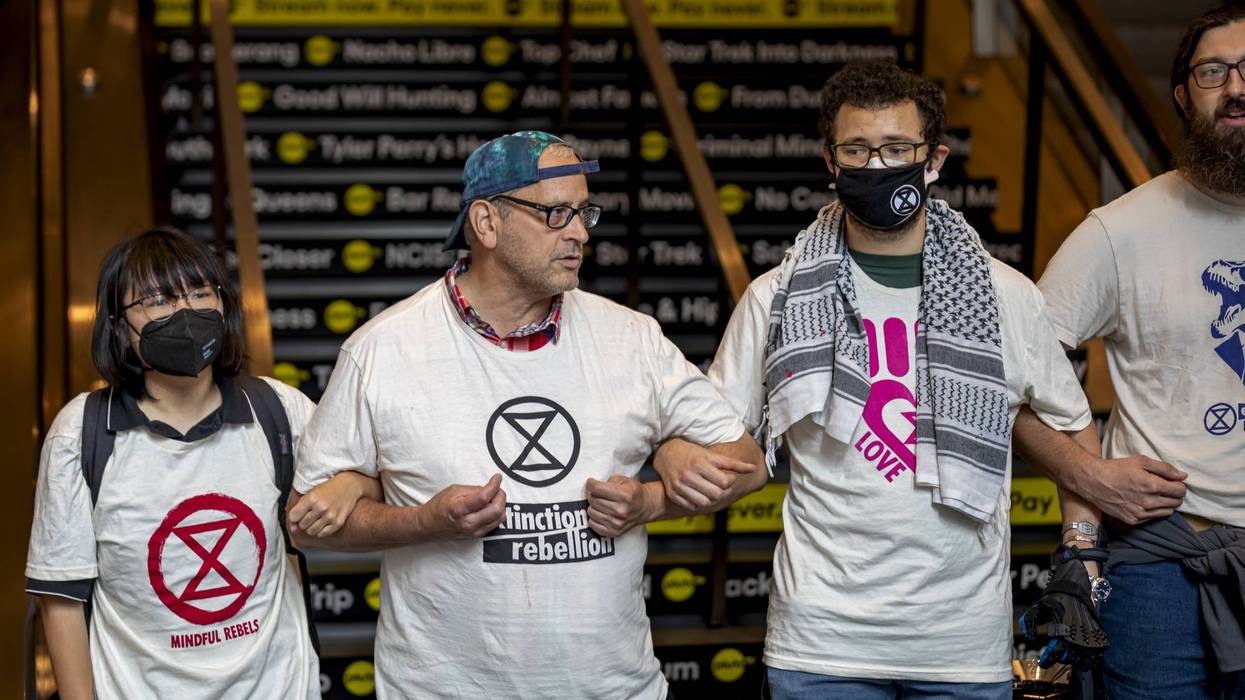
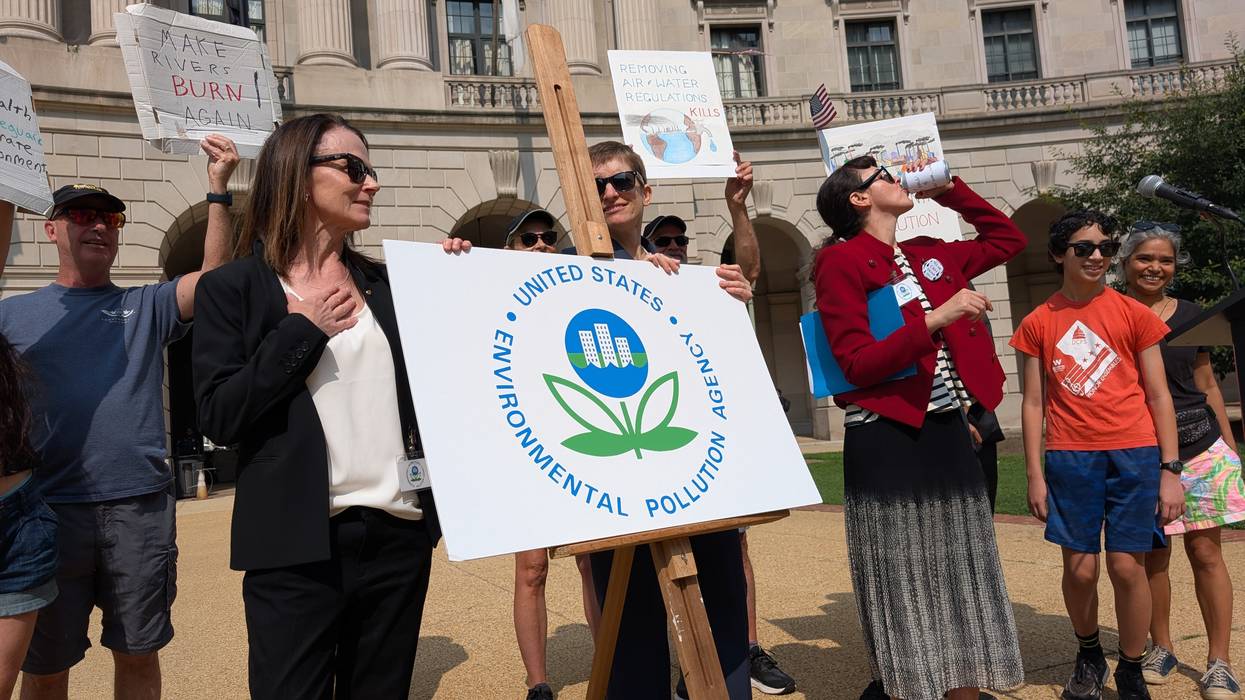
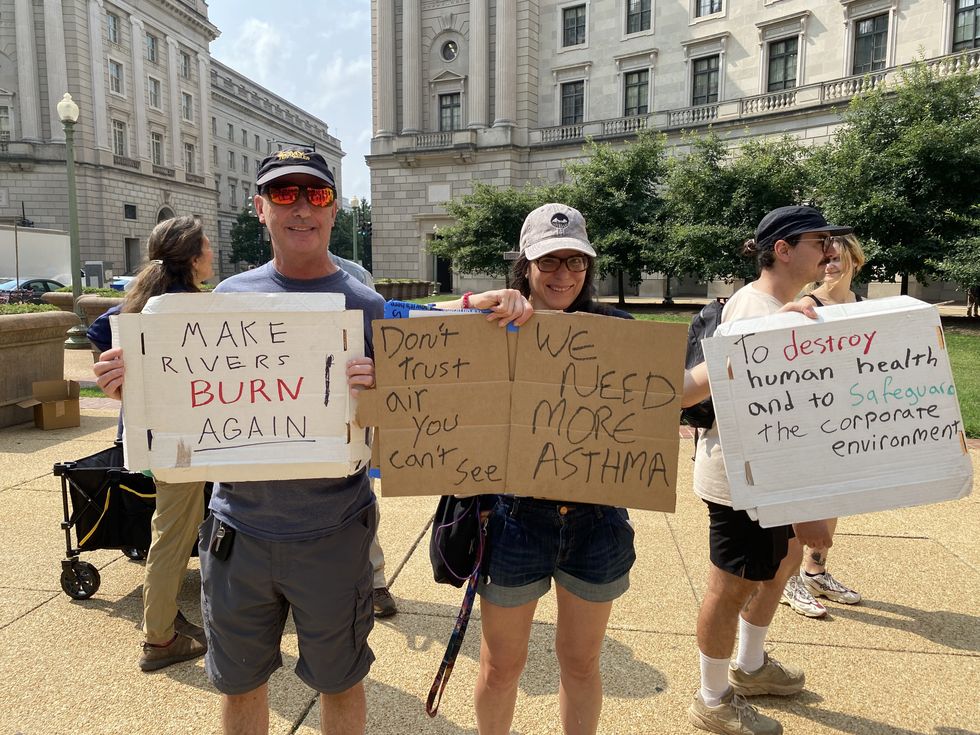 Protesters renamed the U.S. Environmental Protection Agency the Environmental Pollution Agency at its Washington, D.C. headquarters on August 7, 2025. (Photo:
Protesters renamed the U.S. Environmental Protection Agency the Environmental Pollution Agency at its Washington, D.C. headquarters on August 7, 2025. (Photo: 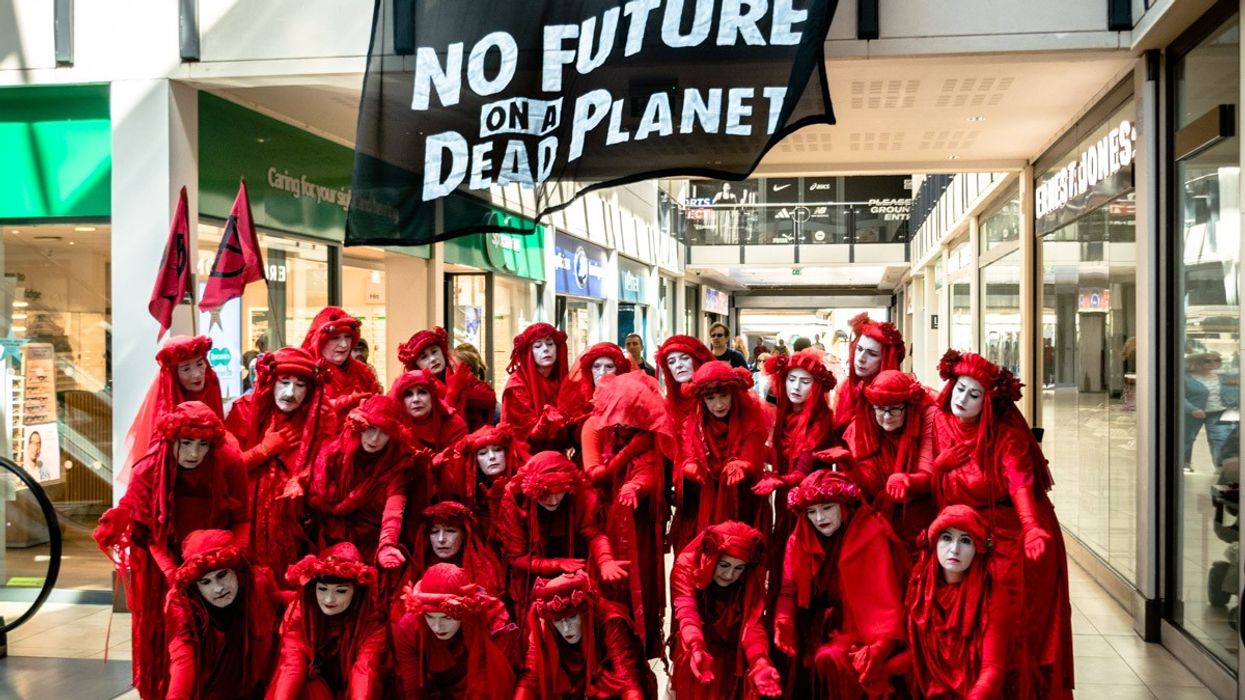
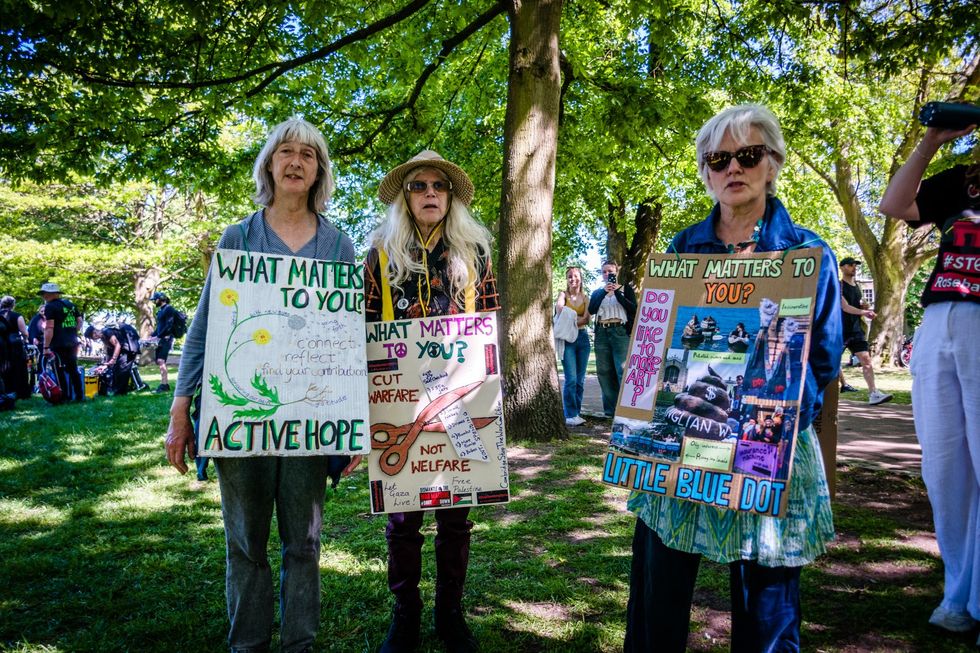
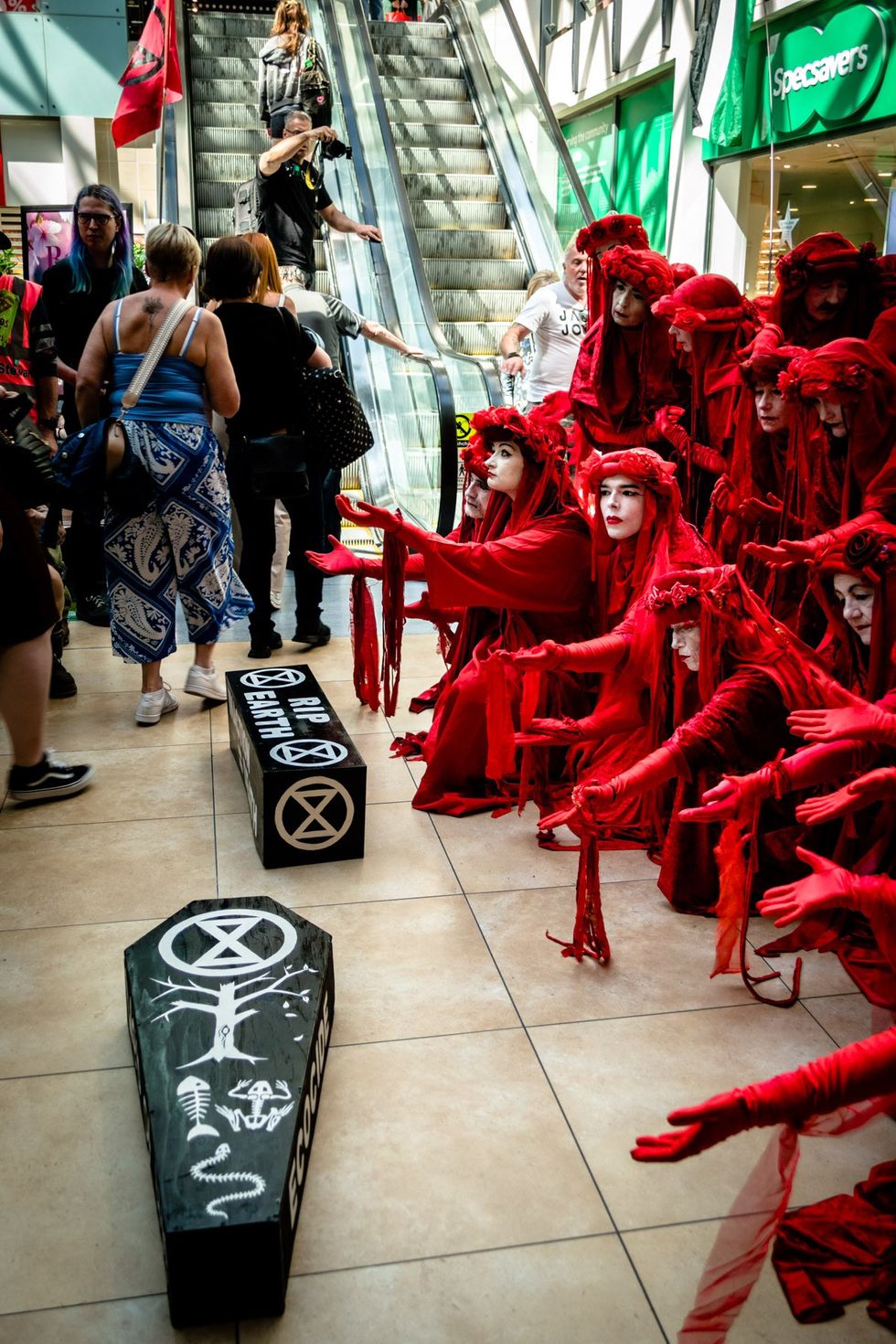 Members of the "Red Rebel Brigade" led a procession around Cambridge, England as part of a funeral for the Paris agreement's 1.5°C temperature target on May 10, 2025. (Photo: Derek Langley)
Members of the "Red Rebel Brigade" led a procession around Cambridge, England as part of a funeral for the Paris agreement's 1.5°C temperature target on May 10, 2025. (Photo: Derek Langley)